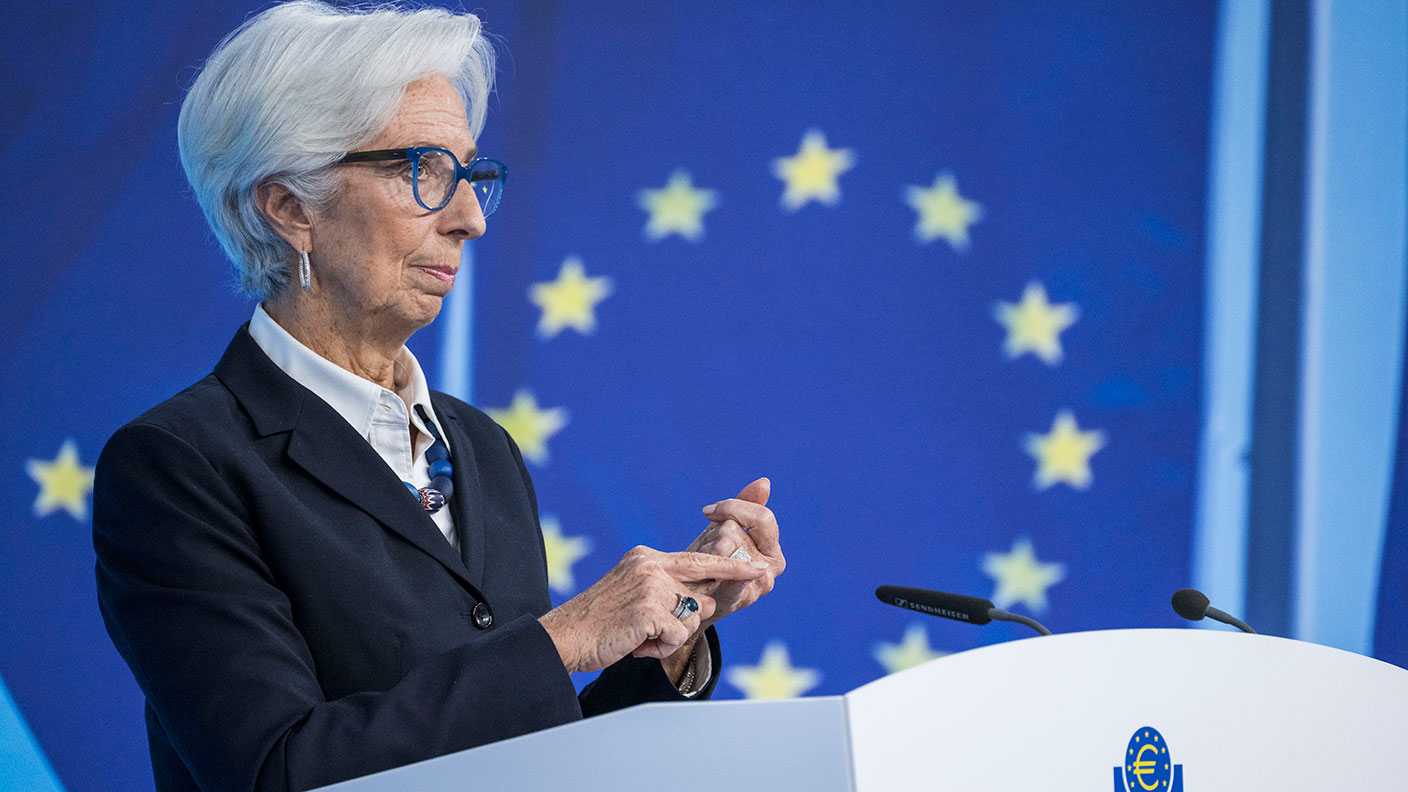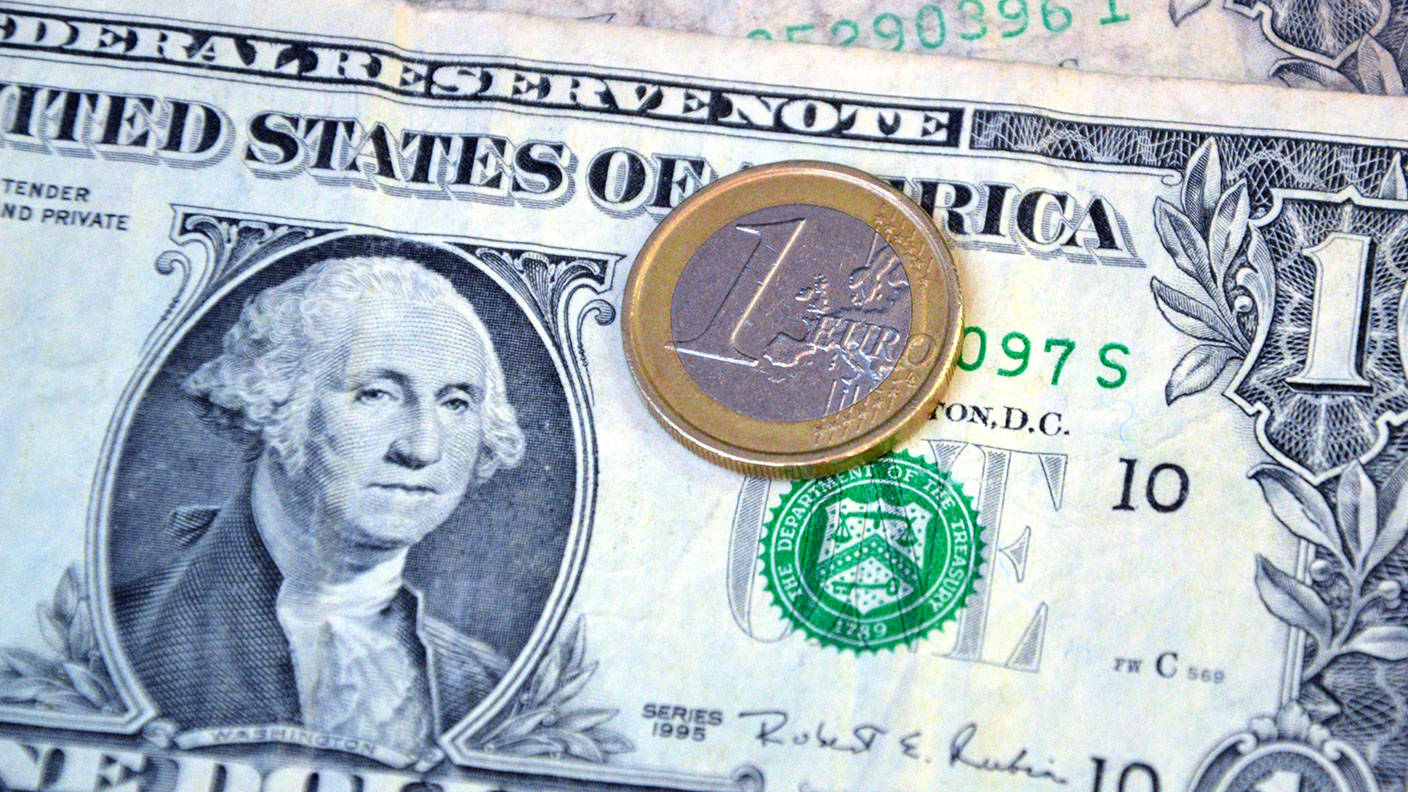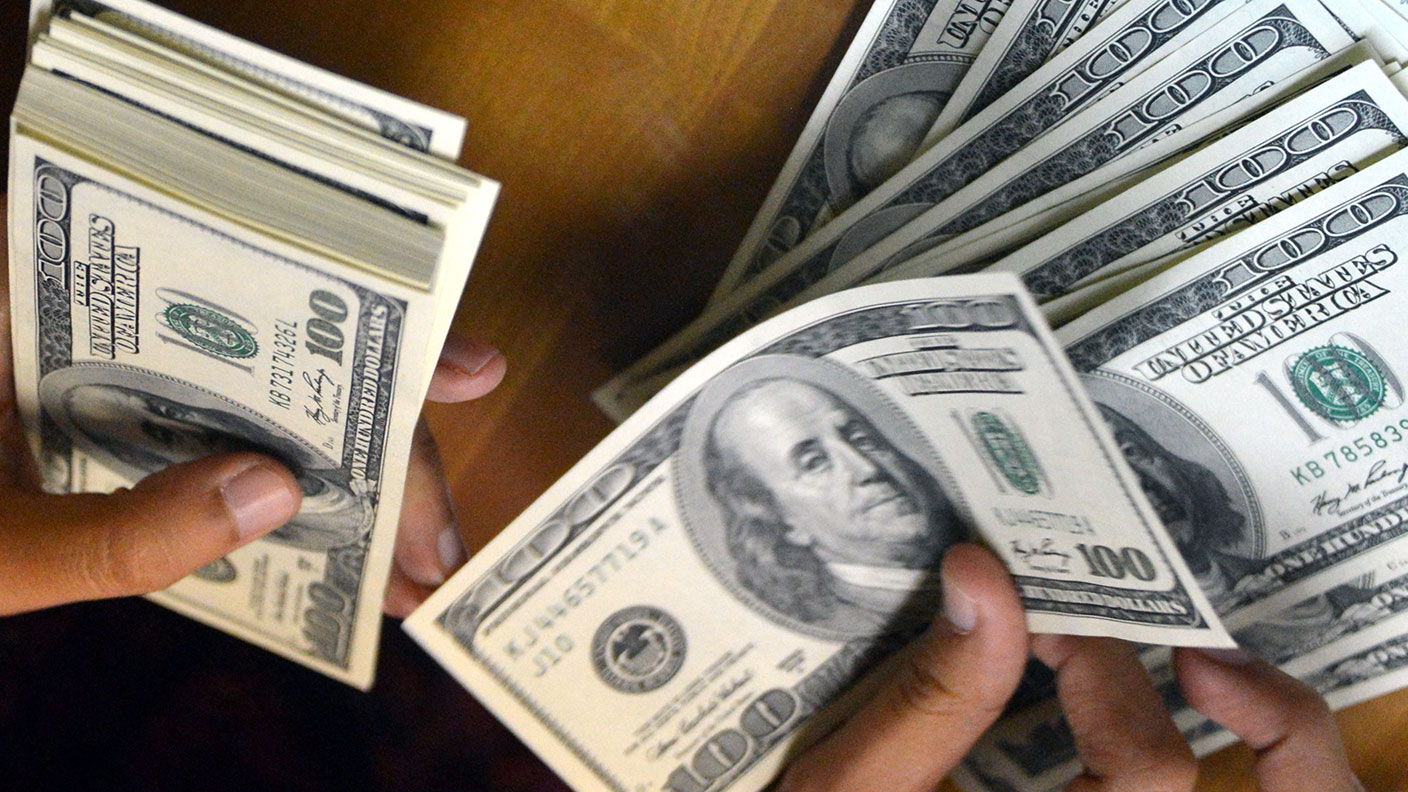Why euro bulls may stay lucky
With the eurozone in such a mess, everyone is expecting the single currency to plummet at any moment. But there are still some good reasons to stay long for now, says Tim Bennett.
Get the latest financial news, insights and expert analysis from our award-winning MoneyWeek team, to help you understand what really matters when it comes to your finances.
You are now subscribed
Your newsletter sign-up was successful
Want to add more newsletters?

Twice daily
MoneyWeek
Get the latest financial news, insights and expert analysis from our award-winning MoneyWeek team, to help you understand what really matters when it comes to your finances.

Four times a week
Look After My Bills
Sign up to our free money-saving newsletter, filled with the latest news and expert advice to help you find the best tips and deals for managing your bills. Start saving today!
It's all doom and gloom in Europe again. The short-term buzz from the European Central Bank's last two liquidity injections has faded. Spanish bond yields are flirting with the danger level of 6% for the first time this year, while analysts watch and wait nervously to see how the next big bond auctions will go. Rumours are even swirling once again that the euro is doomed it's a matter of 'when' not 'if' the single currency finally disintegrates.
So surely now's the time to be a euro bear? Well, maybe not just yet.
As Marketwatch.com's Mark Hulbert points out: "the European currency has outperformed the Dow Jones Industrial Average over the last three months. In US dollar terms the euro is ahead by 3.7% since mid January, while the Dow is up 3.5%".
MoneyWeek
Subscribe to MoneyWeek today and get your first six magazine issues absolutely FREE

Sign up to Money Morning
Don't miss the latest investment and personal finances news, market analysis, plus money-saving tips with our free twice-daily newsletter
Don't miss the latest investment and personal finances news, market analysis, plus money-saving tips with our free twice-daily newsletter
Now, it's just possible that the biggest market in the world - currencies - has lost its head and read all the signs of the euro's imminent demise wrongly. But it's unlikely.
More probably, the market's view for now is that the euro is simply too big to be allowed to fail, even if in the longer term it will, and probably should. Another round of LTRO funding has been all but ruled out, but that doesn't mean Spain will be allowed to head into the abyss until all other avenues (including an intervention from the International Monetary Fund) have been explored.
Meanwhile, as forex.com notes, struggling European banks looking to boost their balance sheets continue to offload higher quality non-EU assets (in the US, China, Japan, the UK and emerging markets) and repatriate the capital back into the eurozone. That's supportive for the single currency, at least in the short term. The same thing happened in the US in late 2008 and early 2009 as US banks scrambled to raise funds and helped to keep the US dollar strong.
Eurozone inflation also remains stubbornly high. And the latestnvestor confidence reading from Germany - now at a two-year high - combined with unemployment at a two-year low, suggest that the German economy may avoid a recession. While all eyes are on struggling Spain, this better German data is all euro supportive.
It's true that everyone expects the euro to fall steeply at any moment. And there's every chance that well before 2012 is out, it will. But a brave contrarian investor has enough reasons to stay long EUR/USD for now, with a stop loss in place.
Get the latest financial news, insights and expert analysis from our award-winning MoneyWeek team, to help you understand what really matters when it comes to your finances.
Tim graduated with a history degree from Cambridge University in 1989 and, after a year of travelling, joined the financial services firm Ernst and Young in 1990, qualifying as a chartered accountant in 1994.
He then moved into financial markets training, designing and running a variety of courses at graduate level and beyond for a range of organisations including the Securities and Investment Institute and UBS. He joined MoneyWeek in 2007.
-
 Should you buy an active ETF?
Should you buy an active ETF?ETFs are often mischaracterised as passive products, but they can be a convenient way to add active management to your portfolio
-
 Power up your pension before 5 April – easy ways to save before the tax year end
Power up your pension before 5 April – easy ways to save before the tax year endWith the end of the tax year looming, pension savers currently have a window to review and maximise what’s going into their retirement funds – we look at how
-
 Investors dash into the US dollar
Investors dash into the US dollarNews The value of the US dollar has soared as investors pile in. The euro has hit parity, while the Japanese yen and the Swedish krona have fared even worse.
-
 Could a stronger euro bring relief to global markets?
Could a stronger euro bring relief to global markets?Analysis The European Central Bank is set to end its negative interest rate policy. That should bring some relief to markets, says John Stepek. Here’s why.
-
 A weakening US dollar is good news for markets – but will it continue?
A weakening US dollar is good news for markets – but will it continue?Opinion The US dollar – the most important currency in the world – is on the slide. And that's good news for the stockmarket rally. John Stepek looks at what could derail things.
-
 What the Latin Monetary Union – Europe’s forgotten currency – can teach us about the euro
What the Latin Monetary Union – Europe’s forgotten currency – can teach us about the euroOpinion The euro isn’t the continent’s first flawed single currency, says Jonathan Compton. The Latin Monetary Union lasted 61 years.
-
 How the US dollar standard is now suffocating the global economy
How the US dollar standard is now suffocating the global economyNews In times of crisis, everyone wants cash. But not just any cash – they want the US dollar. John Stepek explains why the rush for dollars is putting a big dent in an already fragile global economy.
-
 Currency Corner: A lesson from two of the world’s “hardest” currencies
Currency Corner: A lesson from two of the world’s “hardest” currenciesFeatures Dominic Frisby looks at the Swiss franc and Singaporean dollar and what our politicians can learn from these two fiscally responsible nations.
-
 Betting on politics: deal or no deal
Betting on politics: deal or no dealFeatures Matthew Partridge looks at the bookies' odds on the UK leaving the EU with no deal.
-
 Betting on politics: how my tips have fared over the last three years
Betting on politics: how my tips have fared over the last three yearsFeatures It's been three years since Matthew Partridge launched his Betting on Politics column. As you might expect, he's some failures – but he's had a lot more successes